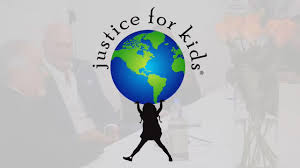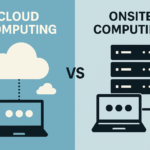
The Fight for Florida’s Children: How Justice for Kids Champions the Rights of Injured, Abused, and Neglected Youth
The vulnerability of children represents one of society’s most sacred trusts. Unlike adults who possess the capacity to protect themselves, children depend entirely on the adults and institutions surrounding them for safety, guidance, and care. This dependency creates profound responsibilities for parents, guardians, educators, caregivers, and all who interact with young people. When these responsibilities are betrayed—through injury-causing negligence, deliberate abuse, or harmful neglect—children suffer consequences that ripple throughout their lives, affecting their physical health, psychological wellbeing, educational achievement, and future potential.
Florida’s legal framework recognizes children as rights-bearing individuals entitled to protection under civil and constitutional law.
When harm occurs, legal remedies exist to hold wrongdoers accountable, secure compensation for damages, and drive systemic changes that protect future children. However, accessing these remedies requires navigating complex legal systems, confronting powerful defendants often backed by substantial resources, and presenting cases in ways that honor children’s experiences while pursuing their interests. This specialized work demands attorneys who combine legal excellence with genuine compassion for young clients and their families.
Justice for Kids has established itself as Florida’s leading advocate for children who have suffered injury, abuse, or neglect. Through exclusive focus on cases involving harmed children, the firm has developed unparalleled expertise in this sensitive practice area. When families contact Justice for Kids at 844-454-3529 or help@justiceforkids.com, they connect with attorneys who view child protection not merely as legal work but as a moral imperative requiring unwavering commitment to justice.
Understanding the Legal Landscape of Child Protection in Florida
Florida’s legal system provides multiple pathways for protecting children and addressing harm they suffer. Understanding this landscape helps families appreciate how civil litigation fits within broader child protection efforts and why specialized legal representation matters.
The child welfare system, administered by the Department of Children and Families, investigates abuse and neglect reports, provides services to families, and, when necessary, removes children from dangerous situations. Dependency court proceedings determine whether children can safely remain with their families or require foster care placement. While this system focuses on safety and family preservation, it doesn’t address civil liability or compensation for harm suffered.
Criminal justice proceedings prosecute individuals who commit crimes against children. Sexual abuse, physical abuse, and severe neglect can result in criminal charges leading to incarceration and sex offender registration. While criminal prosecution serves important societal interests in punishment and deterrence, it doesn’t provide direct compensation to victims or address institutional accountability for enabling harm.
Civil litigation offers distinct advantages that complement but differ from these other systems. Civil cases pursue compensation for damages, holding both individual wrongdoers and negligent institutions financially accountable. They use a lower evidentiary standard than criminal cases, making them accessible even when criminal prosecution isn’t possible. They can proceed against organizations and entities that cannot face criminal charges. Perhaps most importantly, they give victims voice and agency in pursuing justice on their own terms rather than as witnesses in government proceedings.
A Florida child injury attorney or child sex abuse law firm in Florida navigates these interconnected systems strategically. Civil cases may proceed simultaneously with criminal prosecutions or dependency proceedings, requiring coordination to protect clients’ interests across multiple forums. Experienced attorneys understand how developments in one system affect others and how to leverage parallel proceedings advantageously.
Categories of Harm: The Scope of Child Injury and Abuse Cases
Child injury and abuse cases encompass diverse factual scenarios united by common themes: adult failures to protect vulnerable children. Understanding the various categories helps families recognize when legal consultation may be appropriate.
Institutional Sexual Abuse occurs in settings where adults hold authority over children: schools, churches, youth sports, camps, residential treatment facilities, and foster care. Perpetrators exploit their positions of trust to access, groom, and abuse victims. Institutions frequently fail to conduct adequate background checks, ignore warning signs, or actively conceal abuse to protect their reputations. These cases often reveal systemic problems affecting multiple victims over extended periods. A skilled attorney in Florida for child sexual abuse pursues both individual perpetrators and the institutions whose negligence enabled harm.
Familial Abuse and Neglect involves harm within family contexts. While parents or guardians who abuse their children face criminal prosecution and dependency proceedings, civil cases can secure compensation for medical expenses, therapy, and long-term care needs. In some cases, third parties who knew of abuse yet failed to intervene may also bear liability.
Premises Liability Injuries result from dangerous conditions on properties children visit. Inadequate pool barriers leading to drowning, dangerous playground equipment causing severe injuries, improperly maintained facilities creating hazards, or security failures allowing criminal attacks on children all create premises liability. Property owners owe heightened duties to protect child visitors who cannot appreciate dangers adults easily recognize.
Daycare and Childcare Injuries occur with troubling frequency. Inadequate supervision allowing injuries from falls, choking, or aggression from other children; abusive behavior by staff members; failure to follow safety protocols; or dangerous facility conditions all create liability. These cases often involve both individual caregivers and corporate daycare chains whose policies and practices created danger.
School Injuries and Civil Rights Violations arise in educational contexts. Beyond ordinary accidents, schools face liability for foreseeable harm they fail to prevent: bullying that escalates to serious injury, sexual harassment or assault they inadequately address, injuries from known dangerous conditions, or civil rights violations affecting students with disabilities or other protected characteristics.
Medical Malpractice and Birth Injuries occur when healthcare providers fail to meet appropriate standards of care. Birth injuries from obstetrical errors, surgical mistakes harming children, medication errors, delayed diagnoses, or treatment failures all create medical malpractice liability. A law firm in Florida for child injury cases must have resources to pursue complex medical malpractice claims against well-defended healthcare providers.
Product Liability involves defectively designed or manufactured products causing childhood injuries. Dangerous toys, defective car seats, unstable furniture, hazardous children’s products, or any consumer goods unreasonably dangerous to children can create product liability against manufacturers, distributors, and sellers.
Trafficking and Exploitation represents particularly egregious harm where children are bought, sold, or exploited for commercial sex or labor. These cases can involve hotels that turn blind eyes to trafficking occurring on their premises, online platforms facilitating exploitation, or businesses benefiting from trafficked children’s labor. Emerging litigation in this area seeks accountability from entities profiting from or enabling trafficking.
The Psychological Impact of Childhood Trauma
Understanding how injury, abuse, and neglect affect children’s psychological development is essential to appreciating why comprehensive legal advocacy matters. The harm extends far beyond immediate physical injuries, creating ripples that affect every aspect of development and future life.
Adverse Childhood Experiences (ACEs) research has established clear connections between childhood trauma and negative life outcomes. Children who experience abuse, neglect, or household dysfunction face increased risks for depression, anxiety, post-traumatic stress disorder, substance abuse, suicide attempts, and numerous physical health problems including heart disease, cancer, and diabetes. The more ACEs a child experiences, the greater their risk for these negative outcomes.
Trauma affects brain development during crucial formative years. Chronic stress and fear activate survival responses repeatedly, altering neural pathways and stress response systems. This can result in hypervigilance, difficulty regulating emotions, problems with executive function, learning challenges, and altered development of brain regions responsible for memory and emotional processing.
Attachment disruption occurs when children cannot trust caregivers to protect them—whether because caregivers directly cause harm or fail to protect from others’ harm. Healthy attachment forms the foundation for relationships throughout life. Disrupted attachment creates challenges forming and maintaining relationships, trusting others, and regulating behavior and emotions.
Many abused children experience profound shame and self-blame, internalizing the message that they somehow deserved or caused their abuse. This distorted self-perception can persist into adulthood, affecting self-esteem, relationship choices, and overall life satisfaction. Abusers often explicitly blame victims, telling children that they caused the abuse or that disclosure will lead to family destruction or harm to loved ones.
Dissociation—a psychological defense where children mentally separate from overwhelming experiences—can become an ongoing coping mechanism interfering with daily functioning. Some survivors struggle with memory gaps, feeling disconnected from their bodies, or experiencing themselves and the world as unreal.
Complex trauma from ongoing abuse or neglect creates particularly severe impacts. Unlike single-incident trauma, complex trauma occurs repeatedly over time, often in the context of relationships children depend upon. The effects are more pervasive and harder to treat than single-incident trauma, requiring specialized therapeutic approaches.
These psychological impacts create needs for extensive treatment: individual therapy, possibly for years or even a lifetime; family therapy to address relational damage; psychiatric care and medication management; residential treatment in severe cases; and various therapeutic modalities addressing specific trauma symptoms. The costs of this necessary treatment can easily reach hundreds of thousands of dollars over a lifetime. A dedicated child neglect lawyer in Florida or attorney handling any form of childhood harm must accurately project these costs when pursuing compensation.
Justice for Kids’ Comprehensive Approach to Child Advocacy
What distinguishes exceptional child injury and abuse representation from merely competent legal work? The answer encompasses multiple dimensions: specialized knowledge, dedicated resources, trauma-informed practices, and genuine commitment to child clients’ wellbeing beyond case outcomes.
Justice for Kids begins with comprehensive consultations designed to understand each family’s unique circumstances. These initial meetings occur without charge or obligation, recognizing that families need information before making decisions about legal action. Attorneys listen carefully to understand not just the legal issues but the broader context: how the child has been affected, what the family needs, and what justice would mean for this particular child. Families can initiate this process by calling 844-454-3529 or emailing help@justiceforkids.com.
Investigation in child cases requires specialized approaches. Justice for Kids employs investigators experienced in sensitive cases involving minors, who understand how to gather evidence without causing additional trauma. The firm collaborates with leading experts across relevant disciplines: pediatric medical specialists who can identify abuse patterns or evaluate injury severity; child psychologists and psychiatrists who assess trauma impacts; forensic interviewers trained in eliciting information from children; life care planners who project lifetime needs; economists who calculate damages across entire lifespans; and various other experts depending on case requirements.
Trauma-informed representation recognizes that legal proceedings themselves can traumatize young clients. Justice for Kids minimizes children’s direct involvement in proceedings whenever possible, using alternative means of presenting evidence. When children must participate in depositions or testimony, attorneys prepare them thoroughly while maintaining age-appropriate communication. The firm coordinates with therapists to ensure children receive support throughout the legal process and that proceedings don’t undermine therapeutic progress.
Litigation strategy balances achieving best outcomes with protecting clients’ wellbeing. Some cases demand aggressive litigation tactics and willingness to proceed to trial against formidable defendants. Others may be best served through strategic settlement negotiations that secure substantial compensation while avoiding the stress and uncertainty of trial. Justice for Kids makes these strategic decisions in consultation with clients, ensuring that approaches align with families’ priorities and children’s best interests.
Communication remains central throughout representation. The firm maintains regular contact with clients, providing updates on case developments and promptly responding to questions. Legal proceedings can be confusing and overwhelming for families unfamiliar with the system. Justice for Kids demystifies the process, explaining developments in understandable language and ensuring clients remain informed partners in pursuing justice.
The firm’s contingency fee structure removes financial barriers to representation. Families pay no upfront costs, and attorney fees are contingent on successful outcomes. This ensures that children from all economic backgrounds can access high-quality legal representation. Case expenses are advanced by the firm, eliminating the financial burden that might otherwise prevent families from pursuing justice.
Confronting the Challenges of Child Injury and Abuse Litigation
These cases present unique challenges that demand specialized expertise to overcome. Understanding these challenges helps families appreciate why choosing experienced child advocacy attorneys matters.
Evidentiary challenges arise frequently. Children may have difficulty articulating their experiences, especially young children with limited vocabulary or those traumatized into silence. Physical evidence of abuse may be limited or nonexistent, particularly in sexual abuse cases where assaults leave no visible injuries. Witnesses may be limited to the victim and perpetrator, creating he-said-she-said dynamics. Justice for Kids overcomes these challenges through creative use of expert testimony, corroborating evidence, and sophisticated trial presentation.
Statute of limitations defenses can bar otherwise valid claims if families wait too long to file. While Florida has extended limitations periods for childhood sexual abuse, these extensions are complex with various exceptions. Other injury claims have different limitation periods, some tolled during minority and others not. Families must consult attorneys promptly to preserve their rights.
Defendant resources and sophistication present major challenges. Institutional defendants—schools, churches, corporations—often possess substantial financial resources and experienced legal representation. They employ sophisticated defense strategies designed to minimize liability and compensation. They may conduct extensive discovery, file numerous motions, and pursue every available defense. Justice for Kids matches these resources and strategies, refusing to be outmatched by powerful opponents.
Qualified immunity protects government officials from liability in many circumstances, requiring proof that they violated clearly established constitutional rights. These defenses can be difficult to overcome, requiring detailed knowledge of constitutional law and relevant precedent. However, exceptions exist, and skilled attorneys know how to navigate qualified immunity defenses.
Insurance complexities affect nearly every case. Determining available coverage, pursuing multiple policies, overcoming exclusions, and litigating coverage disputes when insurers deny responsibility all require specialized knowledge. Maximizing available insurance compensation demands attorneys experienced in insurance law.
Emotional challenges affect families throughout litigation. Discussing children’s trauma repeatedly, confronting defense attorneys who may attack victims’ credibility, waiting for slow court processes, and managing uncertainty about outcomes all create stress. Justice for Kids supports families emotionally throughout this journey, providing not just legal representation but compassionate guidance.
Building Cases That Juries Understand and Judges Respect
Success in child injury and abuse litigation requires presenting complex cases in ways that factfinders understand and find compelling. This demands sophisticated trial skills and strategic presentation.
Storytelling forms the foundation of effective advocacy. While legal claims must be established through elements and evidence, juries respond to narratives that help them understand what happened and why it matters. Justice for Kids presents cases as stories with clear characters, events, and stakes rather than dry recitations of facts and legal arguments.
Expert testimony requires careful selection and preparation. Experts must possess genuine credentials and experience, communicate clearly without condescension, and withstand aggressive cross-examination. Justice for Kids works with leading experts who regularly testify and understand courtroom dynamics.
Visual presentations help juries absorb complex information. Timeline graphics, medical illustrations, photographs, video presentations, and other visual aids make testimony more memorable and understandable. In this era where people process information visually, effective trial presentation incorporates sophisticated graphics and demonstrative evidence.
Damages presentations must address both present harm and future needs. Life care planners detail treatment children will require over their lifetimes. Economists project costs adjusted for inflation and reduced to present value. Vocational experts assess how injuries affect future earning capacity. Psychologists explain long-term trauma impacts. This comprehensive damages presentation ensures juries understand the full scope of compensation necessary.
Protecting children during proceedings remains paramount. When children must testify, preparation is crucial. Mock testimony, courtroom tours, and explaining what to expect all reduce anxiety. Supportive adults accompanying children, testimony via closed-circuit television in appropriate cases, and other accommodations balance evidentiary needs with child protection.
Effective advocacy requires genuine passion for child clients’ justice. Juries sense when attorneys truly care about their clients versus merely performing professional obligations. Justice for Kids’ attorneys bring authentic commitment to every case, viewing child advocacy as more than work—it’s a calling.
The Broader Impact: How Individual Cases Drive Systemic Change
While Justice for Kids focuses on securing justice for individual child clients, the firm recognizes that successful cases contribute to broader social change protecting all children. Each case that holds institutions accountable, exposes dangerous practices, or establishes favorable legal precedent benefits children beyond the immediate client.




